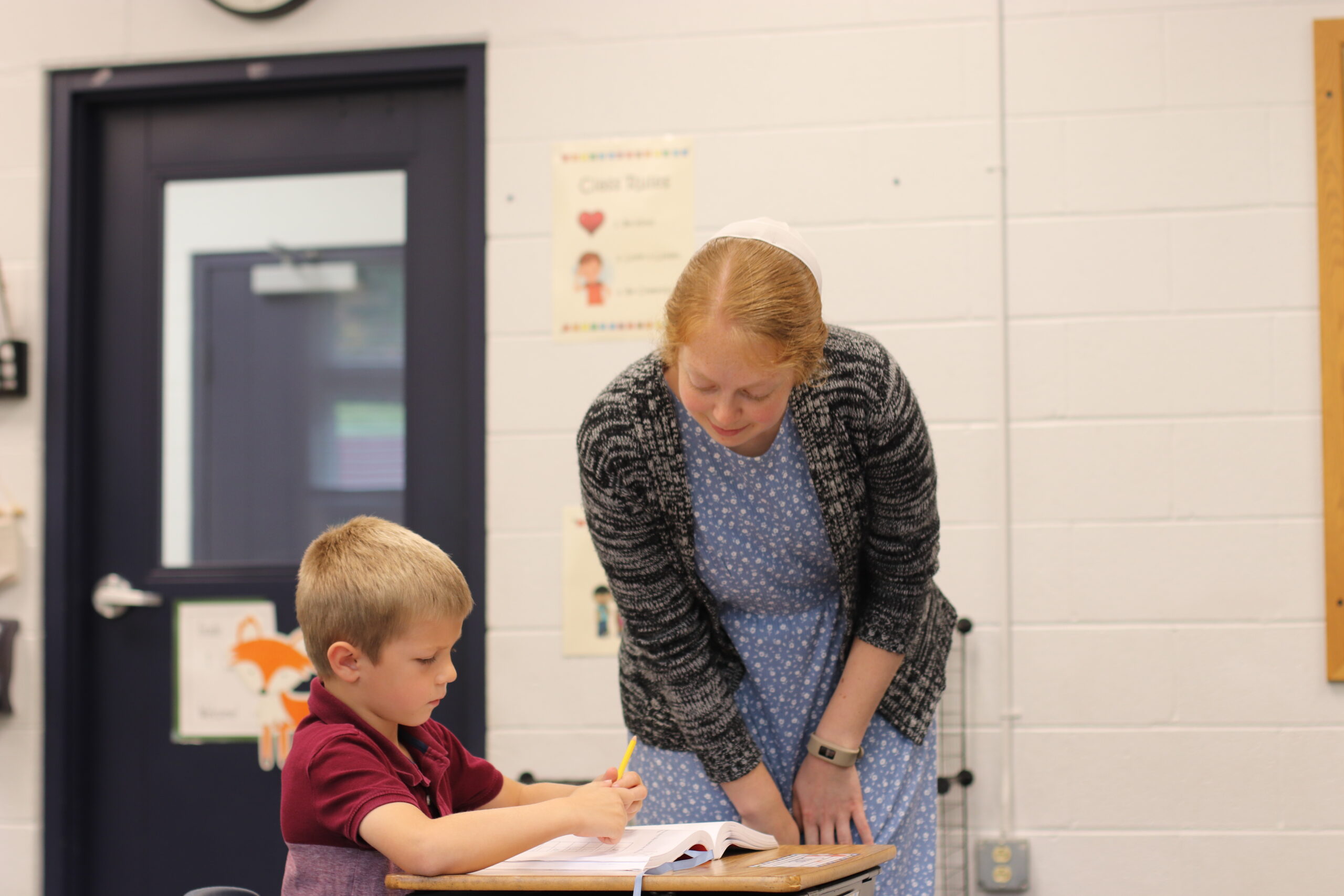Am I a Teacher? Or Am I Just Pretending?

A beginning teacher, the first weeks of school, and a common question, “Do you feel like a teacher?” How does one answer that? What does being a teacher feel like? Is it showing up every morning, presenting lessons effectively, racing through math flash cards, listening to long-winded stories, admiring the hole left by the missing tooth, settling recess squabbles, bandaiding scratches, cleaning up spilled lunches, and checking workbook pages? Does feeling like a teacher feel like brain exhaustion by the end of the day? Is it a shared camaraderie between fellow teachers? Does one feel more like a teacher when the lightbulb goes on in a student’s eyes or when one is stifling frustration with the child who is hopelessly confused? Is the teacher feel developed by sticky candy gifts, moments of student growth, and apology notes? Can one feel like a teacher when things haven’t gone well; when a student continues to show disrespect; when the concept of long division still hasn’t stuck after six weeks; when recesses are a series of arguments; when spring is a long way off?
I’ve taught long enough to teach the second generation of six-year-olds to read. But sometimes I still wonder, “Am I really a teacher? What does it mean to really be a teacher? What should being a teacher feel like?” Some days and some years I do feel like a successful teacher. And other days and other years, I wonder if I am really the one for the job. I sit in teacher meetings and listen to others share wisdom and experience and wonder if I am at all qualified. Some days, I listen to an idea from a beginning teacher and wonder why I never thought of that before. After all, I’ve done this long enough that everyone thinks I’m a pro. But what if I’m not.
I have an idea that every teacher at times wonders if they are merely pretending to be a teacher. Any time one starts to compare themselves to others, we start to doubt our own abilities. Beginning teachers look at those with more experience and become discouraged with all they don’t know or get accomplished. Older teachers, too, can compare themselves to fellow teachers—or even to previous years of their own—and wonder why things don’t go as smoothly as they’d like.
Part of being a teacher is the fact that we show up every day. We continue to learn new methods, explore new ideas, and expand our horizons. But part of the teacher life is also recognizing that the struggle through hazy math concepts, reading challenges, and recess disagreements is the real part of teaching. Being there, every day, not giving up is what makes one a teacher; not the accomplishments and accolades.
So, to the younger teachers, keep going. Every day you show up with a prayer in your heart and a smile on your face you are gaining experience. You are a teacher.
To the experienced teacher who’s been teaching for a few years, keep going. On those days you feel eclipsed by the newer, younger, more exciting co-teacher; by the ideas presented at teacher workshops; by the “experienced” voices of others; by successes of others where you struggled—you are gaining experience. You are the teacher God created you to be. Yes, keep growing. Yes, check your heart and your motives. Yes, give heed to constructive criticism but unless you are called elsewhere; keep going. Be heartened by the fact that at some point each of us wonders whether we are teachers or imposters.
Leave a Reply